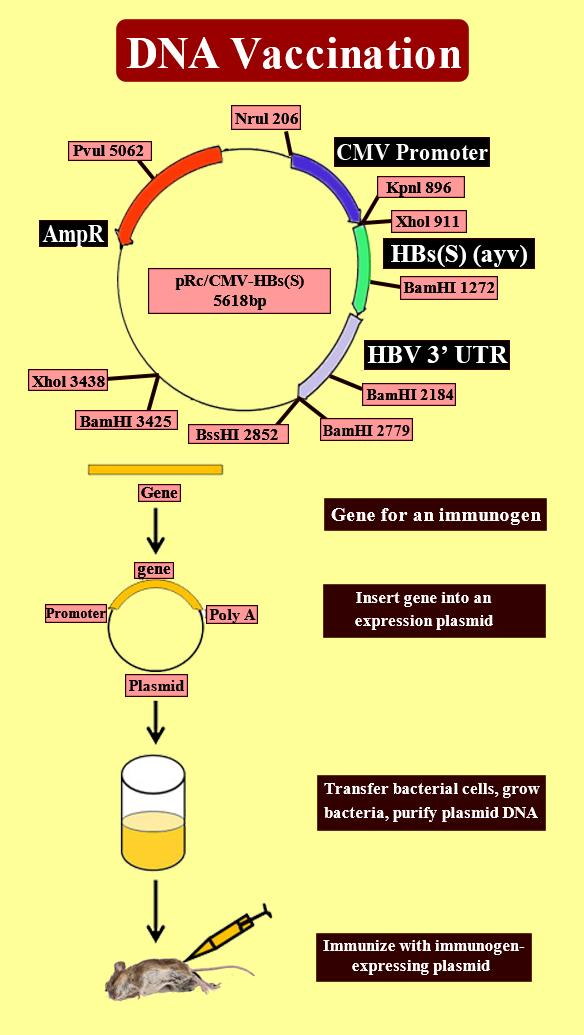Question
Question: Discuss what does ‘a suitable gene’ means with your teacher in the context of DNA vaccines....
Discuss what does ‘a suitable gene’ means with your teacher in the context of DNA vaccines.
Solution
The term 'suitable gene' refers to that gene (a specific segment of DNA) that will be modified in the host to produce specific protein to kill specific disease-causing organisms. The gene is carried by DNA vaccines that encode a specific antigen and when it is introduced into a live host, an immune response is induced by the antigen encoded by the gene and as a result, the host cell becomes immune to a particular antigen. For this purpose, DNA vaccines should carry a “suitable gene”.
Complete answer:
A technique where the cells directly produce the antigen which causes a protective immunological response is called DNA vaccination, here a genetically engineered plasmid is injected containing the DNA sequence that encoded the antigen(s). DNA-based immunization has become a novel approach to vaccine development Since its early applications in the 1950s. A strong immune response to the antigen encoded by the gene vaccine is induced by direct injection of naked plasmid DNA. The host cells take up the foreign DNA once the plasmid DNA construct is injected, expressing the viral gene and producing the corresponding viral protein inside the cell and that form of antigen presentation and processing induced both MHC class I and class II-restricted cellular and humoral immune response. A novel technique that is used to stimulate humoral and cellular immune responses to protein antigens efficiently is called genetics/DNA immunization. A small number of cells to produce the introduced gene products after the direct injection of genetic material into a living host. In the context of DNA vaccine, "Suitable gene" means incorporating a small segment of DNA in the host genome, that codes for producing required humoral immunity whenever antigens enter into the body of the host.
Additional Information: 1)The use of genetic material to deliver genes for therapeutic purposes has been practiced for many years. As early as 1950, experiments outlining the transfer of DNA into cells of living animals were reported.
2) Two scientists namely Tang and Johnson, in 1992 reported that the delivery of human growth hormone in an expression cassette in vivo resulted in the production of detectable levels of the growth hormone in host mice.
3) The expression plasmids contain two units that are used in this type of vaccination, which is the antigen expression unit which is composed of promoter/enhancer sequences, and the other unit is antigen-encoding and polyadenylation sequences.
So, the correct answer is, ‘suitable gene refers to the perfect fitting bacterial plasmid for DNA vaccine.’

Note: Advancements in antigen design, improved formulations, the inclusion of molecular adjuvants, and physical methods of delivery have greatly enhanced the immunogenicity of second-generation DNA vaccines. For preventative and therapeutic applications, the improved performance has spurred a renewed interest in the platform that is reflected by the numerous ongoing clinical trials investigating DNA vaccines. Several gene-based vaccines are approved for use in a veterinary practice or targeting canine melanoma (Merial), West Nile virus (Wyeth), fish hematopoietic necrosis virus (Novartis), and swine growth hormone-releasing hormone (Inovio).
